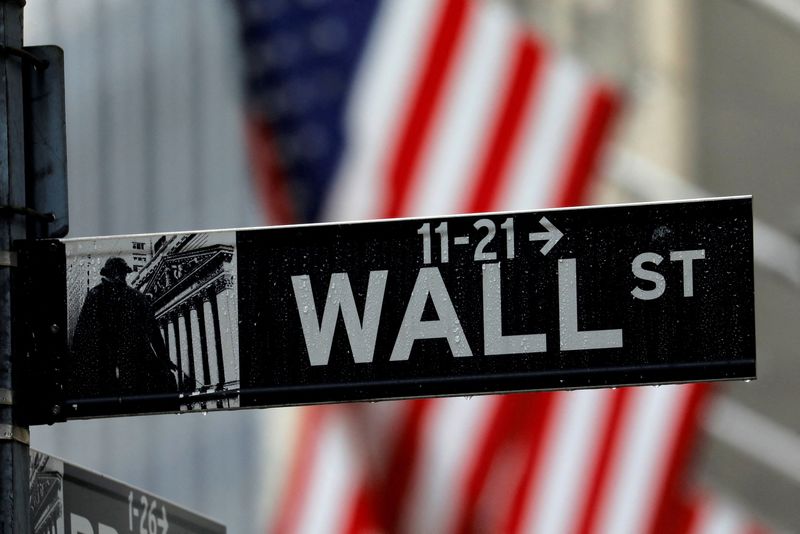By Davide Barbuscia
NEW YORK (Reuters) - Several major Wall Street banks have begun offering to facilitate trades in Russian debt in recent days, according to bank documents seen by Reuters, giving investors another chance to dispose of assets widely seen in the West as toxic.
Most U.S. and European banks had pulled back from the market in June after the Treasury Department banned U.S. investors from purchasing any Russian security as part of economic sanctions to punish Moscow for invading Ukraine, according to an investor who holds Russian securities and two banking sources.
Following subsequent guidelines from the Treasury in July that allowed U.S. holders to wind down their positions, the largest Wall Street firms have cautiously returned to the market for Russian government and corporate bonds, according to emails, client notes and other communications from six banks as well as interviews with the sources.
The banks that are in the market now include JPMorgan Chase & Co (NYSE:JPM), Bank of America Corp (NYSE:BAC), Citigroup Inc (NYSE:C), Deutsche Bank AG (ETR:DBKGn), Barclays (LON:BARC) Plc and Jefferies Financial Group Inc, the documents show.
The return of the largest Wall Street firms, the details of the trades they are offering to facilitate and the precautions they are taking to avoid breaching sanctions are reported here for the first time.
Bank of America, Barclays, Citi and JPMorgan declined to comment.
A Jefferies spokesperson said it was "working within global sanctions guidelines to facilitate our clients’ needs to navigate this complicated situation."
A source close to Deutsche Bank said the bank trades bonds for clients on a request-only and case-by-case basis to further manage down its Russia risk exposure or that of its non-U.S. clients, but won’t do any new business outside of these two categories.
STRANDED ASSETS
Some $40 billion of Russian sovereign bonds were outstanding before Russia began what it calls a "special military operation" in Ukraine in February. Roughly half was held by foreign funds. Many investors got stranded with Russian assets, as their value plummeted, buyers disappeared and sanctions made trading hard.
In May, two U.S. lawmakers asked JPMorgan and Goldman Sachs Group Inc (NYSE:GS) for information about trades in Russian debt, saying they may undermine sanctions. The following month the Treasury's Office of Foreign Assets Control banned U.S. money managers from buying any Russian debt or stocks in secondary markets, prompting banks to pull back.
Regulators have since taken steps to help ease the pain for investors.
The Treasury provided further guidance on July 22 to help settle default insurance payments on Russian bonds. It also clarified that banks could facilitate, clear and settle transactions of Russian securities if this helped U.S. holders wind down their positions.
Separately, European regulators have also eased rules to allow investors to deal with Russian assets by allowing them to put them into so-called side pockets on a case-by-case basis.
The price of some Russian bonds has jumped alongside the renewed trading activity since late July. That could make the trades more attractive to investors and also help companies that sold protection against Russian default.
For example, U.S. bond manager PIMCO - which was on the hook for a payout of around $1 billion after Russia defaulted on its dollar debt in June - could now save around $300 million, one investor estimated. PIMCO declined to comment.
"There’s some bid emerging for both local and external bonds for the first time in a while," said Gabriele Foa, portfolio manager of the Global Credit Opportunities Fund at Algebris, who follows the market for Russian securities. "Some banks and brokers are using this bid to facilitate divestment of Russian positions for investors that want to get out." Reuters could not establish who was buying the bonds.
Graphic: Russian bonds involved in CDS auction: https://graphics.reuters.com/RUSSIA-BONDS/CDS/byprjyryope/chart.png
LOTS OF RULES
Some banks are offering to trade Russian sovereign and corporate bonds, and some are offering to facilitate trades in bonds denominated in both roubles and U.S. dollars, according to the documents and the investor who holds Russian securities. But they are also demanding additional paperwork from clients and remain averse to taking on risk.
In a research update to clients on Wednesday, for example, Bank of America declared in capital letters in red: "Bank of America is now facilitating divestment of Russian sovereign and select corporate bonds.”
But it added that it would be acting as "riskless principal on client facilitation trades,” meaning a situation where a dealer buys a bond and immediately resells it. It also warned there were "a lot of rules around the process" which remained subject to "protocol and attestation.”
The approaches also differ among banks. In some cases, for example, banks are offering clients to help divest their holdings as well as other types of trades that would reduce exposure to Russian assets, while others are limiting trades to asset disposals only.
At times they are asking investors to sign documents prior to trade execution that would allow the banks to cancel trades if settlement does not go through and risks leaving the banks with Russian paper on their books, according to one of the documents and the investor.
One bank warned clients that settlements would take longer than usual.
